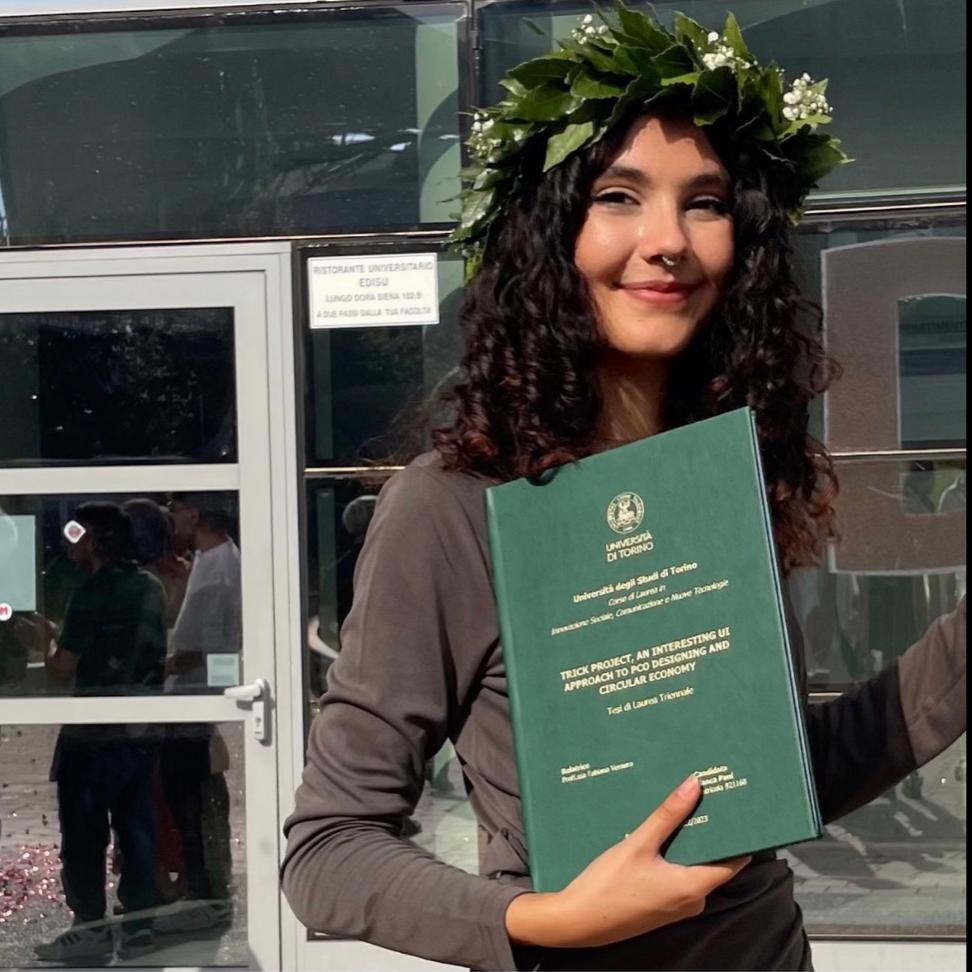Domina's Adaptive Mentoring: A New Thesis Success in PCO UI based on the TRICK project

TRICK addresses the issue of circularity by providing its stakeholders with a digital platform equipped with 6 dedicated services, including the PCO (Preferential Certificate of Origin), which plays a key role in the flow of goods with non-EU countries. Bianca Pani's training focused on the development of the user interface for this service. She is the second trainee that our partner Domina accompanied to university degree with a thesis resulting from the fieldwork on our project. Domina’s choice to include students from the University of Turin in TRICK's activities proves how European projects can effectively become a training vehicle and positively influence the education of the next generation on current and relevant issues.
The thesis subject connected with the role of Domina in TRICK
In particular, the thesis "TRICK project, an interesting UI approach to PCO designing and circular economy” was developed in parallel with the activities carried out by Domina within a complex project, such as TRICK, in which the Italian IT provider, as Technical Manager and Responsible of the project platform development, manages wide-ranging actions. Among these are the activities carried out in the Task 4.3 – service design and implementation of PCO – included in the Work Package 4, devoted to B2B marketplace development and service implementation. That’s the context in which the trainee, included in the project research team, carried out her research work. She first studied the regulatory framework in which the Preferential Certificate of Origin is contextualised. Then she contributed to a hypothetical design for developing the user interface for the digital certification.

Bianca Pani
About digitalization of PCO: reasons, needs and impacts
A core TRICK’s service is the Preferential Certificate of Origin, since, as the thesis indicates, its digitalization facilitates and simplifies Customs control operations for both users and Customs, and is a valuable countermeasure to counterfeit goods.
But, let’s get a little bit deeper into the PCO context. What is PCO, why can it be so relevant in the movement of goods and how can the migration to a digital certificate make the movement itself more manageable and traceable? As indicated by the DG for Taxation and Customs Union (DG TAXUD): “Preferential origin is conferred on goods from particular countries, which have fulfilled certain criteria. To obtain preferential origin, those criteria generally require that the goods be wholly obtained or have undergone specifically determined working or processing”. The PCO certifies that the goods in a particular shipment are of a certain origin according to the terms defined in a specific bilateral or multilateral free trade agreement. Exporters having been issued such a certificate are allowed to benefit from preferential treatment under the applicable agreement.
Each year, millions of physical certificates are issued, and the subsequent work is onerous, time-consuming, and causes delays in processing, even at customs. Furthermore, the complexity of the current procedures may encourage recourse to unfair and opaque behaviour to obtain the benefits guaranteed by certification. The digital shift would have three evident positive impacts:
- time savings
- more transparency along the supply chain
- money savings, and a clear reduction in red tape obligations.
UI design for PCO service: scenario and challenges
Starting from these assumptions, the thesis contextualised the state of the art relating to PCO and the other add-ons services offered by TRICK examining the spread of electronic certificates worldwide and their regulations. As a second step, the research analysed 4 examples of wireframes developed for electronic certificates with features similar to those required by PCO, to gather the most useful elements for the realisation of the user interface. Finally, it analysed the scenario from the users’ point of view by collecting their requirements by creating user personas.
The challenge of the thesis was to develop an interface hypothesis that adhered as closely as possible to the needs of the scenarios of use, yet could simultaneously meet the legal requirements accompanying transnational certificates. To achieve this result, the trainee's commitment was complemented by advice and examples from her mentor and project staff, demonstrating the formative value of European projects as a training ground for the study of circular economy issues and their practical application.
CONTACT PERSON & EMAIL ADDRESS:
- Caterina Calefato (email)